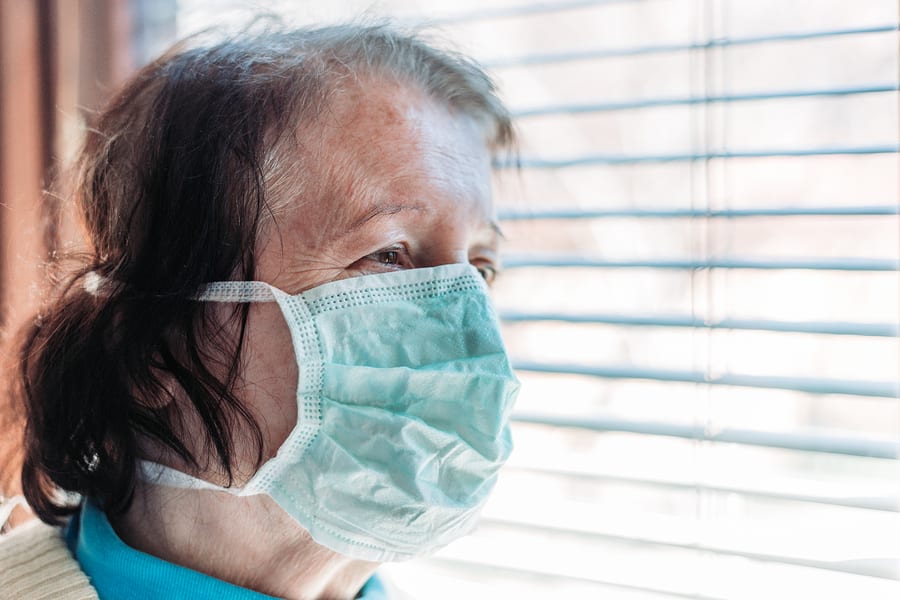Caring for a loved one with dementia can be a challenge without a global pandemic. But, as reported cases rise, it is important to maintain proper care for your loved ones. These tips below will focus on ways to help guide your loved ones to take preventative measures, even if they may not understand the gravity of the current global situation.
Confusion
Like many diseases, increased confusion and lack of focus is a common first symptom of the coronavirus. While that can be easily missed in a dementia patient, look for signs of rapidly increasing confusion, and then contact your loved one’s healthcare provider. Unless they are showing signs of a fever or difficulty breathing, talking to their physician is recommended over an emergency room visit.
Written Reminders
It is important to help your loved one practice safe hygiene practices. One of the easiest ways to do this is to provide them with written reminders. Put a sign in their bathroom reminding them to wash their hands with soap and water for at least 20 seconds. You should also show them how to wash their hands thoroughly. Other written reminders may be helpful in aiding your loved one when you aren’t with them. A reminder to drink water, for instance, can be important in keeping them hydrated.
Social Distancing
Social distancing may be a difficult concept for your loved one to grasp while they are suffering from dementia. The best way to help them is to keep yourself and your other loved ones informed. If you and your family do your best to remember to maintain proper social distancing, you can reduce the risk of infection to your loved one. It is important to explain social distancing to your loved one. While they may not understand it, or remember it; you don’t want them to feel neglected.
Working with Their Doctor
You should contact your loved one’s primary care physician, in order to get additional information regarding care during these times. You may want to ask them for extended prescriptions to reduce the amount of trips to the pharmacy during this time.
Avoiding Contact With the Sick
While caring for your loved one, you should limit the amount of contact you have with others. Avoid going shopping for groceries and other supplies when possible, and take preventative measures when you do need to venture out. Your family members that are feeling sick, or who have been in contact with those who are sick, should avoid visiting you or your loved one. If you become sick, find another family member or friend to provide care for them. Communicate with their neighbors, who may be able to check on them when you cannot. Additionally, consider hiring a home health care professional to care for them during these times.
Home Health Aides at Safe Harbor
Our certified home health aides are trained to take preventative measures, including social distancing, for the safety of your loved one. Our professional team is working to ensure that everyone under our care is well taken care of during this global health crisis. We are closely monitoring information as it comes out from vital medical sources, such as WHO and the CDC; and making sure that our home health aides are working in accordance with these safety regulations.
Safe Harbor Healthcare Services does not provide medical or healthcare advice via articles. This material has been prepared for informational purposes only, and is not intended to provide, and should not be relied on for medical advice.
Safe Harbor Healthcare Services has been providing excellent home care on Staten Island since 1967. Our services help the elderly and disabled live safely and independently; while giving their families the peace of mind they need. For more information contact Safe Harbor by clicking here, or call us at (718)-979-6900.
SafeHarbor is working 24 hours to continue providing safe and quality home care services during COVID-19. Let us know if we can help you during these difficult times. Information regarding the novel coronavirus is changing daily. For more up-to-date information, check the CDC and WHO websites.

